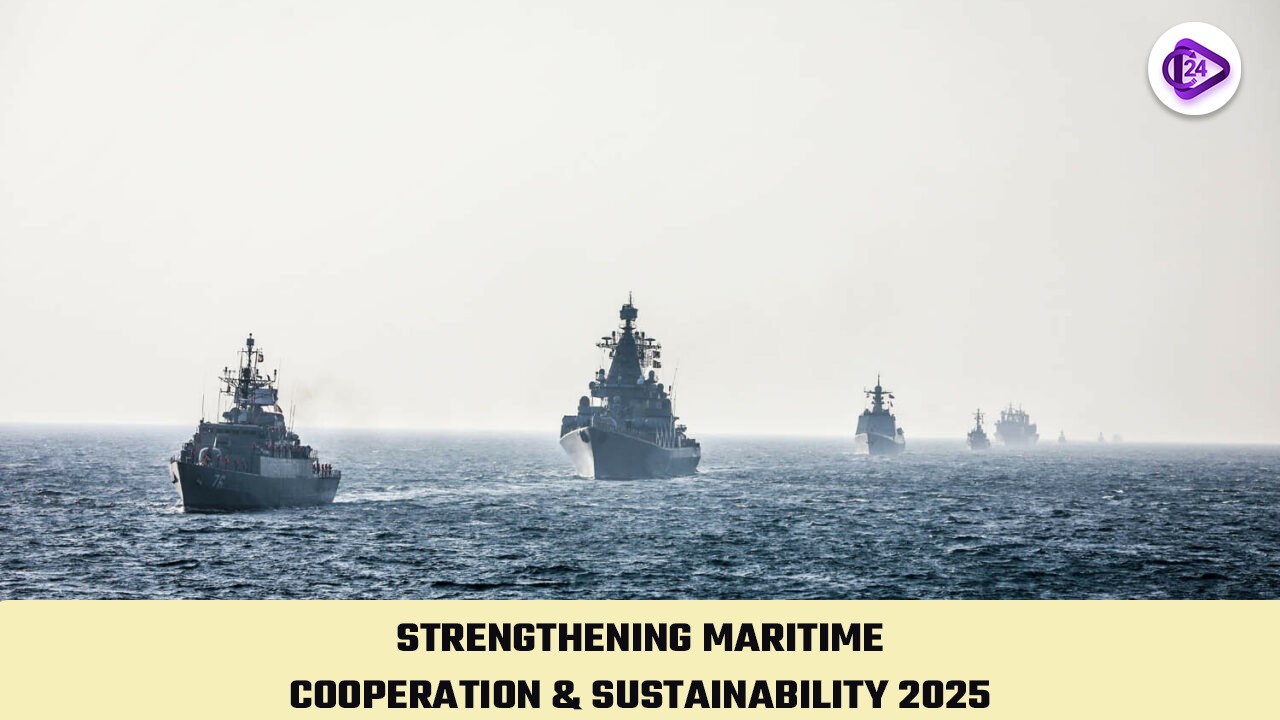
The Eighth Indian Ocean Conference (IOC) assembled in Muscat, Oman on February 16th 2025 to explore “Voyage to New Horizons of Maritime Partnership” as its main subject. Through virtual attendance Dr. Balakrishnan the Minister for Foreign Affairs of Singapore demanded conference participants to establish maritime rules with sustainability goals while intensifying international alliances.
The Indian Ocean stands as a vital economic zone since global trade routes transport 80% of all commercial activity. The minister warned about escalating worldwide political conflicts and the strengthening of trade limitations that attempted to block shipping lanes. Dr. Singapore sustains its pledge to agree with UNCLOS and Dr. Balakrishnan values the Biodiversity Beyond National Jurisdiction (BBNJ) Agreement while promoting marine conservation.
The rising severity of sea temperatures and extreme weather events required immediate attention according to him. The maritime sector of Singapore makes progress toward sustainability by implementing green shipping programs and decarbonization programs. Through this conference Singapore worked to develop partnership relationships which would guarantee a steady sustainable future for the Indian Ocean region.
Context
-
The 8th Indian Ocean Conference (IOC) organized its sessions in Muscat, Oman during 16 February 2025.
-
“Voyage to New Horizons of Maritime Partnership” served as the conference theme focused on maritime cooperation and sustainable trade along with resource management strategies.
-
The representatives from Singapore presented at the Eighth Indian Ocean Conference through Ambassador-At-Large Ong Keng Yong together with officials from the Ministry of Foreign Affairs.
-
Dr. Vivian Balakrishnan connected to the conference virtually in his role as Singapore’s Minister for Foreign Affairs.
Key Themes of the Address
A. Importance of the Indian Ocean
-
The Indian Ocean functions as an essential shipping lane that links North Atlantic region with the Asia-Pacific.
-
80% of global maritime oil trade and 9.48 billion tonnes of cargo pass through the Indian Ocean.
-
Transporting goods by sea remains the most efficient approach in modern times.
B. Challenges to the Global Maritime Order
-
Ongoing geopolitical conflicts in Middle East, Africa, and Ukraine pose threats to maritime security.
-
The global shipping operations face threats that include rockets proliferating through weapon developments and AI military systems and the impacts of non-state entities interfering with maritime passages.
-
Multilateralism is eroding because protectionism increases and international law passes unobserved.
C. Upholding International Maritime Law
-
The United Nations Convention on the Law of the Sea (UNCLOS) from 1982 places emphasis on:
-
Freedom of navigation across national and international waters.
-
No unjustified fees or restrictions on maritime passage.
-
Economic growth for littoral states like Singapore and Oman.
-
The Biodiversity Beyond National Jurisdiction (BBNJ) Agreement will achieve success in protecting marine ecosystems when finalized in 2023.
-
D. Sustainable Development of Oceans
-
Coral bleaching alongside extreme weather events and shipping disruptions occur as a result of +1°C temperature increase in Indian Ocean sea surfaces.
-
The government of Singapore actively supports Maricon Protected Areas as a reliable approach to maintain vital habitats alongside carbon storage systems.
-
Shipping makes up 3% of global emissions so the International Maritime Organization (IMO) established its goal to achieve net-zero emissions by 2050.
E. Singapore’s Green Maritime Initiatives
-
Maritime Singapore Green Initiative: Incentives for clean energy ships.
-
The Global Centre for Maritime Decarbonisation accomplished a 28% reduction of emissions by implementing biofuel programs.
-
Green and Digital Shipping Corridors: Strengthening bilateral partnerships for maritime sustainability.
Geopolitical and Strategic Implications
-
India aims to establish free oceanic connections in the Indo-Pacific region through maritime regulations.
-
Singapore should develop enhanced strategic alliances with India and Oman and other countries in the Indian Ocean region.
-
The maintenance of long-term maritime stability requires solving the climate change problems.
Conclusion
-
Stable maritime relations require all countries to work together under established maritime rules.
-
Different countries must unite their efforts toward fighting climate change while establishing sustainable Indian Ocean development.
-
International connections and policy discussions happen through the leadership of theIOC.




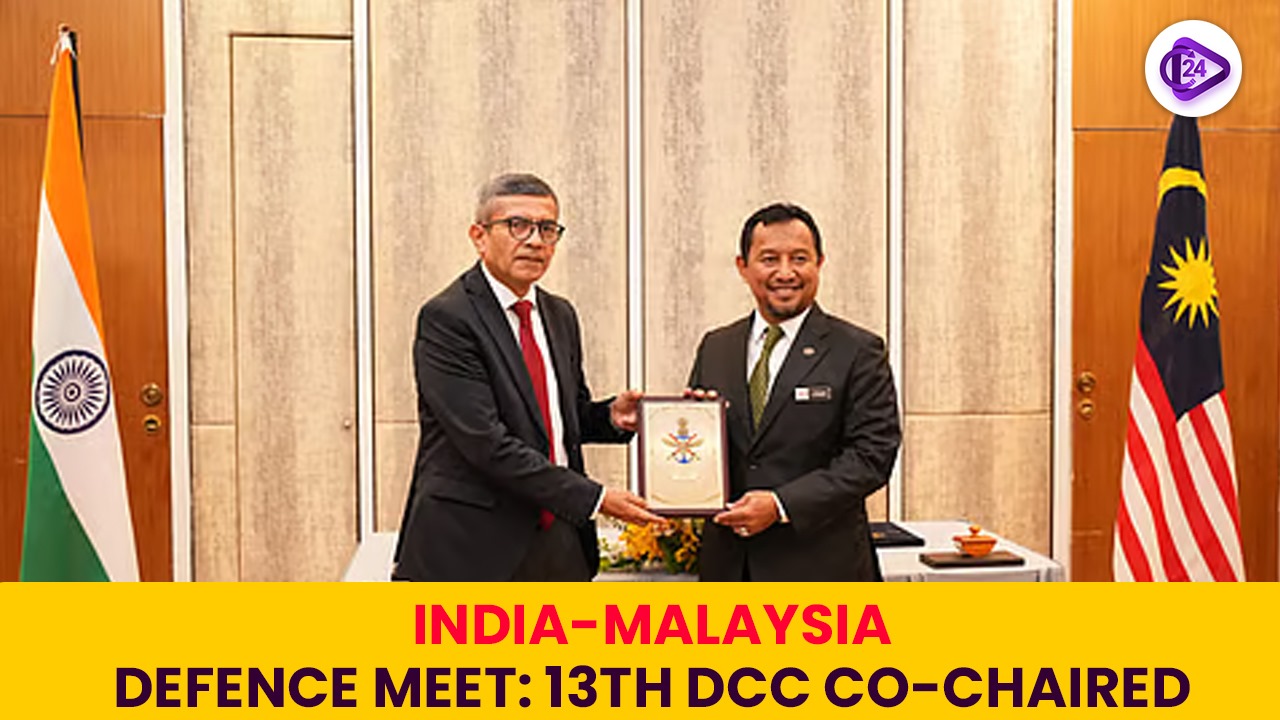 Defence Secretary Co-Chairs 13th Malaysia-India Defence Cooperation Committee Meeting
Defence Secretary Co-Chairs 13th Malaysia-India Defence Cooperation Committee Meeting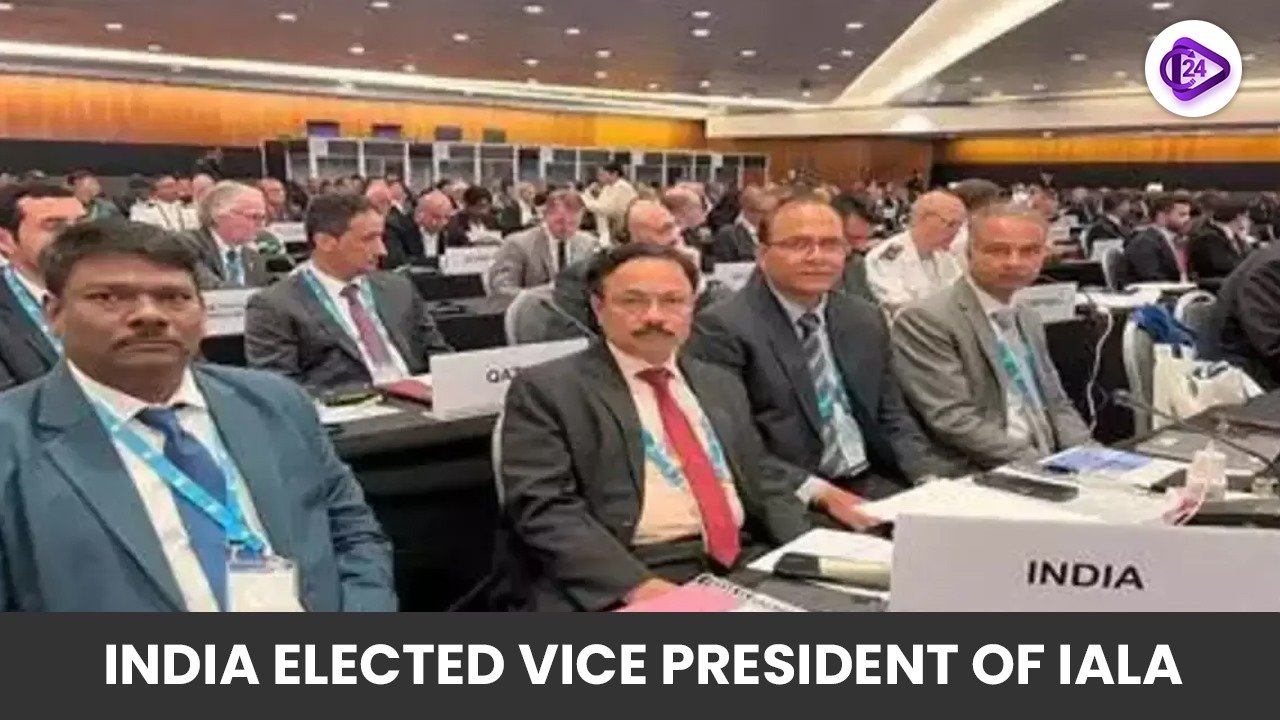 India Elected to Vice Presidency of International Organization of Aids to Marine Navigation (IALA)
India Elected to Vice Presidency of International Organization of Aids to Marine Navigation (IALA) India Increases Agricultural Import Tariffs to Safeguard Farmers
India Increases Agricultural Import Tariffs to Safeguard Farmers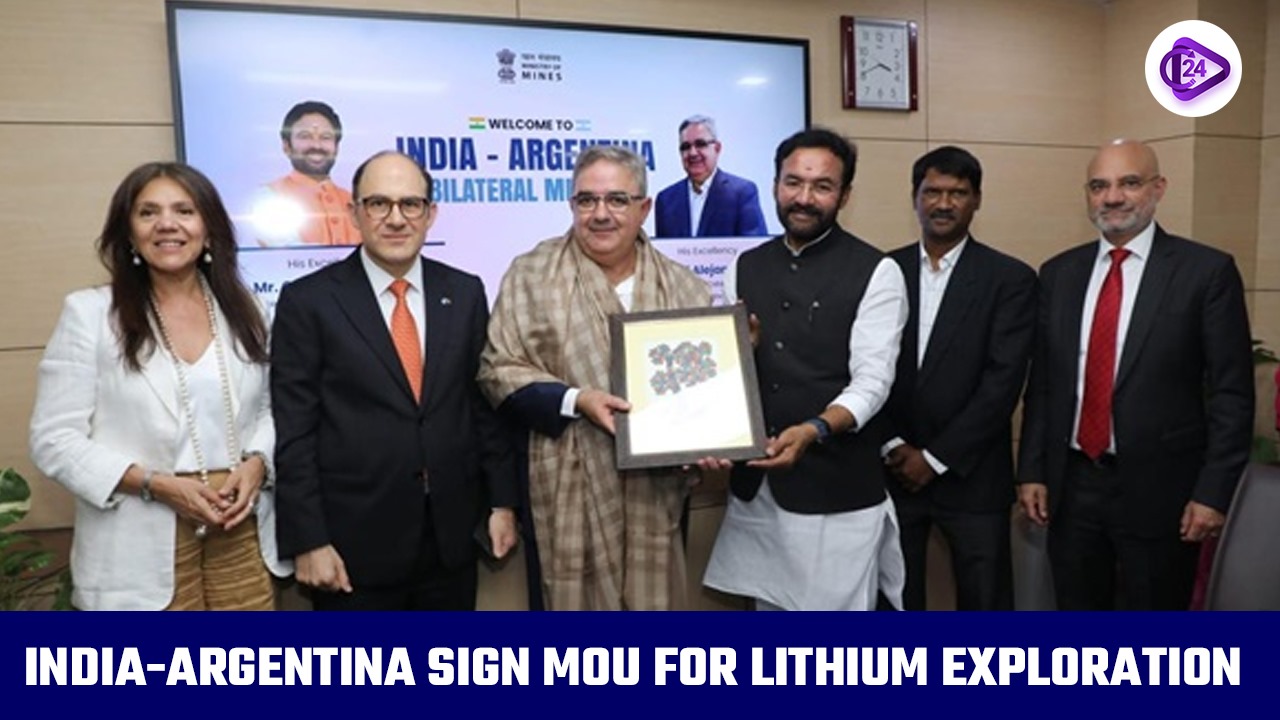 India and Argentina Strengthen Cooperation in Lithium Exploration and Mining with a MoU
India and Argentina Strengthen Cooperation in Lithium Exploration and Mining with a MoU India-Qatar Strategic Partnership: Strengthening Trade, Security, and Bilateral Cooperation
India-Qatar Strategic Partnership: Strengthening Trade, Security, and Bilateral Cooperation Syria’s Heritage Restoration: Reviving Culture and Economy
Syria’s Heritage Restoration: Reviving Culture and Economy US-Russia Talks in Saudi Arabia: Geopolitical Shifts and Limited Outcomes
US-Russia Talks in Saudi Arabia: Geopolitical Shifts and Limited Outcomes China's Major Contribution to U.S. Imports (2018-2023)
China's Major Contribution to U.S. Imports (2018-2023)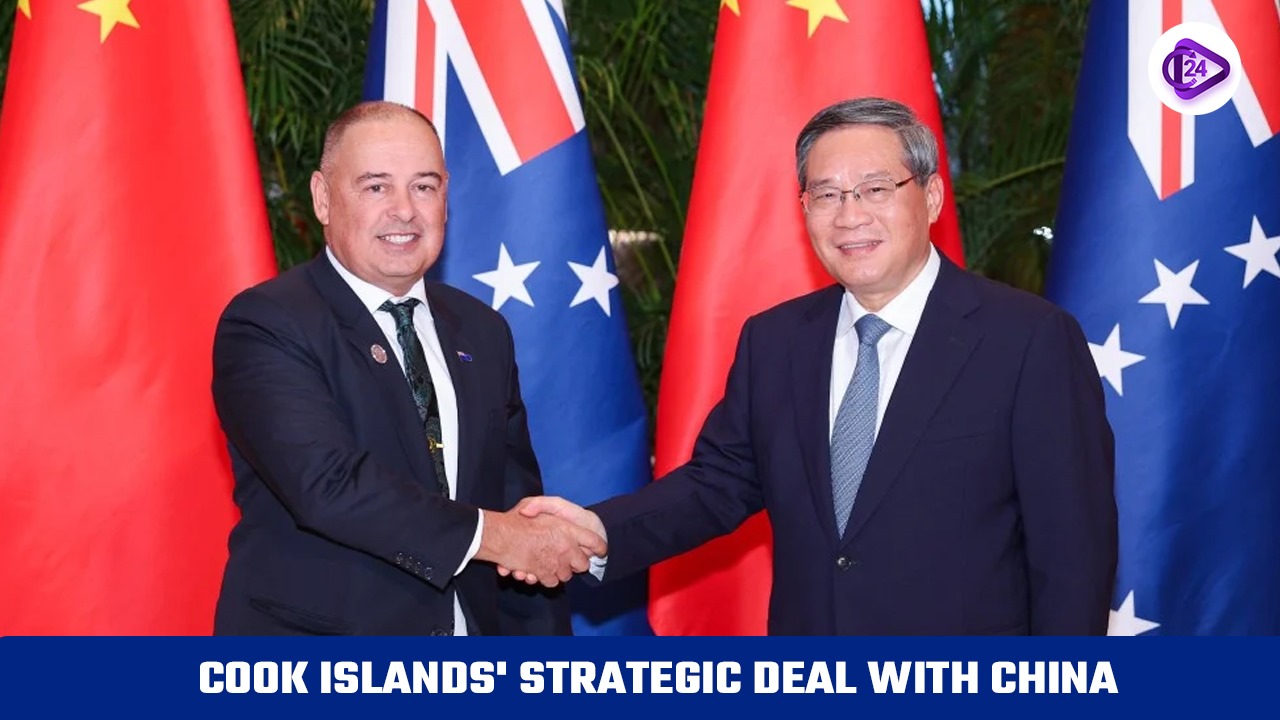 Cook Islands' Strategic Deal with China: Opportunities and Challenges
Cook Islands' Strategic Deal with China: Opportunities and Challenges






